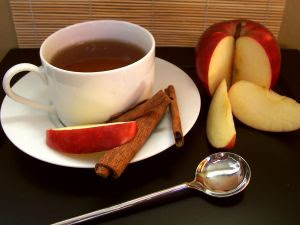 Is the coffee at your workplace keeping you alert during the working hours?
Is the coffee at your workplace keeping you alert during the working hours?
How much coffee is too much?
Is the teetotaler next to your cubicle less alert than you are?
This post is not a case against drinking coffee at work; but presents a challenge to the alternatives. Read on and see if you would like to take on the challenge..
Of course there are studies and evidence on how coffee elevates you to a “higher” level of alertness. One target says:
- Caffeine in coffee increases alertness and reduces fatigue. This may be especially important in low arousal situations (e.g. when working at night).
- Caffeine in coffee improves performance on vigilance tasks and simple tasks, which require sustained response. Again, these effects are often clearest when alertness is reduced, although there is evidence that benefits may still occur when the person is unimpaired.
The website anti aging guide says,
Too much caffeine can produce restlessness, nausea, headache, tense muscles, sleep disturbances, and cardiac arrhythmias (irregular heartbeats). Because caffeine increases the production of stomach acid it may worsen ulcer symptoms or cause acid reflux (“heartburn”). Evening use of caffeine may disrupt sleep and cause insomnia.
So how much coffee is too much coffee?
According to Talk about Coffee, If you-
• Have been substituting coffee in place of water and juice in your diet
• Are having trouble falling asleep
• Are pregnant or nursing a child
• Have a medical condition such as high blood pressure, gastritis, or ulcers
-it’s time to switch to decaf, or even give coffee a miss altogether for a while.
The National Soft Drink Association retarget of caffeine contents – A 7 oz cup of coffee has the following caffeine (mg) amounts:
Drip 115-175 mg of caffeine
Espresso 100
Brewed 80-135
Instant 65-100
Decaf, brewed 3-4
Decaf, instant 2-3
Tea, iced 70
Tea, brewed, imported 60
Tea, brewed, U.S. 40
Tea, instant 30
Mate 25-150
Now for the Challenge
How about a cup of fresh fruits and fresh squeezed juice option? The natural way – eating fresh fruits and raw veggies has been a proven way to increase mental agility, alertness and increasing memory.
A report says,
The Mental Health Group, known as Mind, out of England performed a study involving 200 people. The participants were instructed to cut down on sugar, caffeine, alcohol, and chocolate (these were the “stressors”). They were also instructed to increase the amount of water, fresh vegetables, fruit, and fish (“supporters”). A whopping 88% of those adhering to this “diet” reported an improvement in their mental health. Broken down this equated to 26% who reported a reduction in mood swings, 26% reporting fewer panic attacks, and 24% reporting less depression.
Agreed, this study shows an improvement in the mental health; and you might not be in that stage at work. But your work is “mental” for sure (in most cases), so why not give it a try and see if your coffee addiction or fresh-fruits addiction works best towards bettering your performance and alertness at work.
Is there anyone ready to take on a challenge of giving up caffeine for say around 2 weeks and taking on to only fresh squeezed juice or fresh fruits at the workplace and see how your mental alertness and performance differs? Let me know and we can get our results (depending on what works better for most) and who knows instead of the coffee machine you might have stacks of fresh fruit cups and a juice extractor in the kitchen if your company supports a healthy and alert work environment!
Anyone up for this challenge?
Related Posts:

